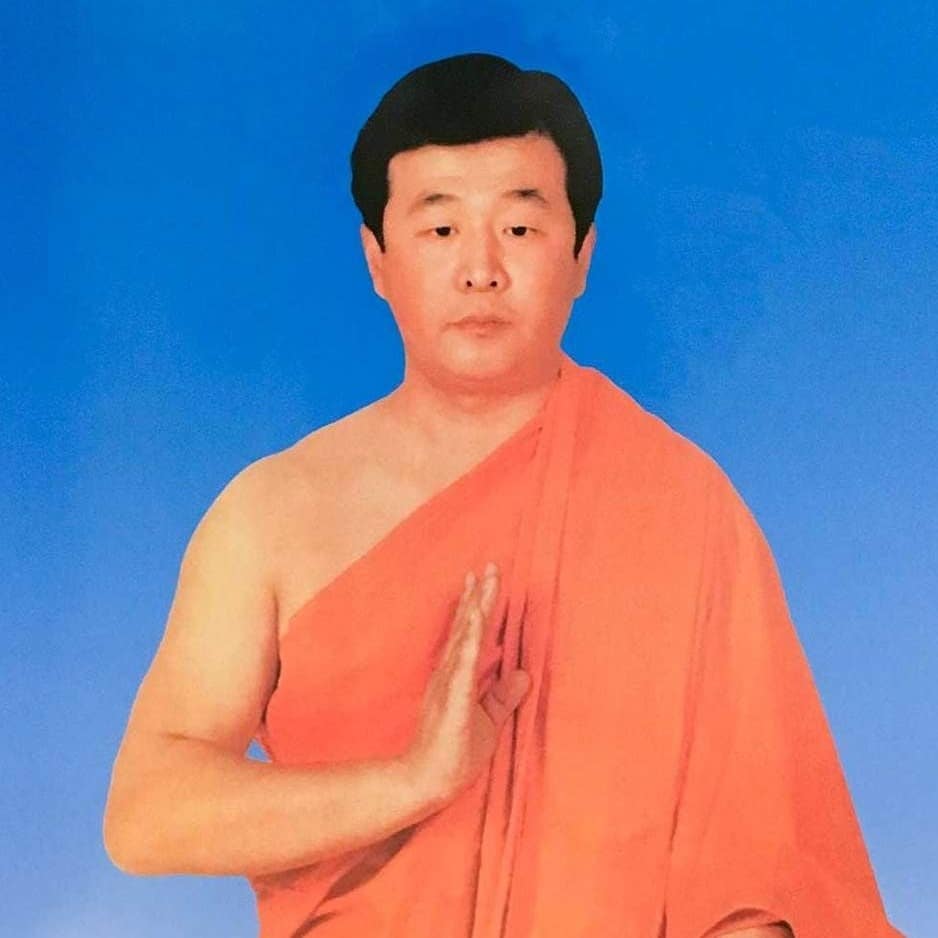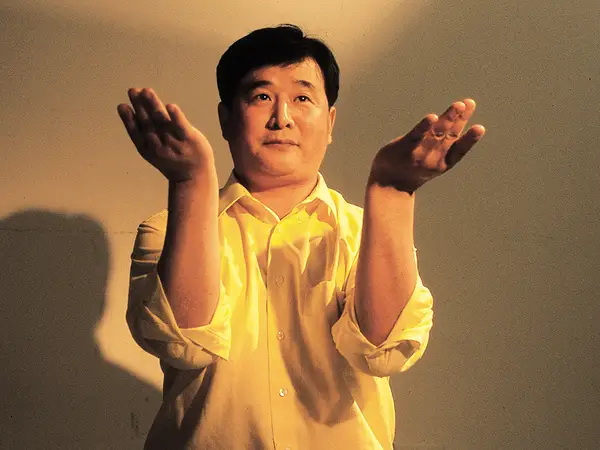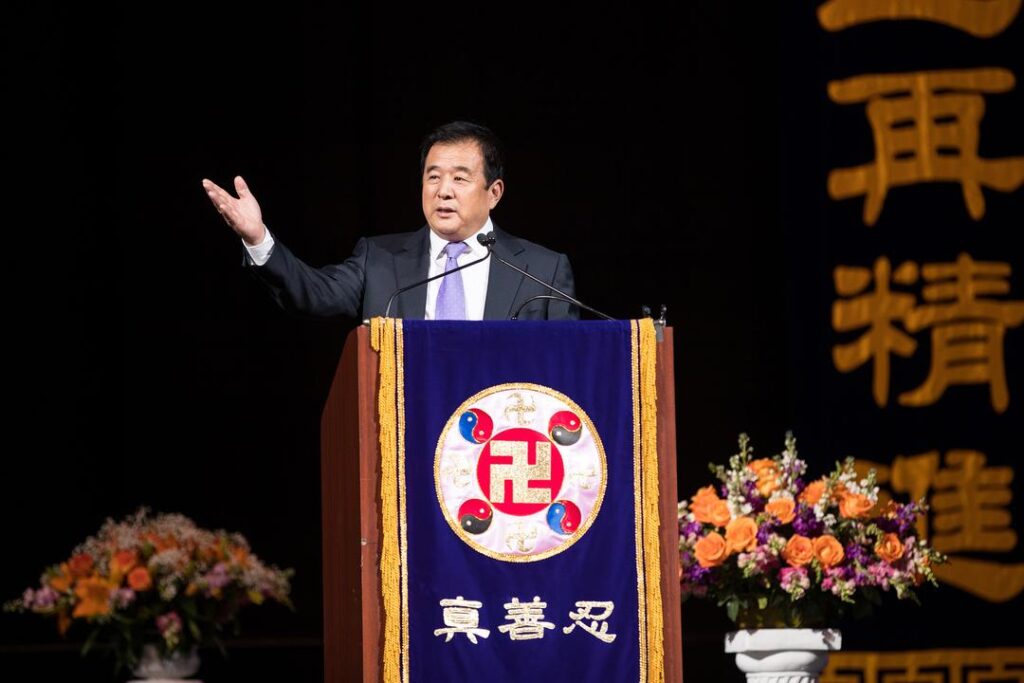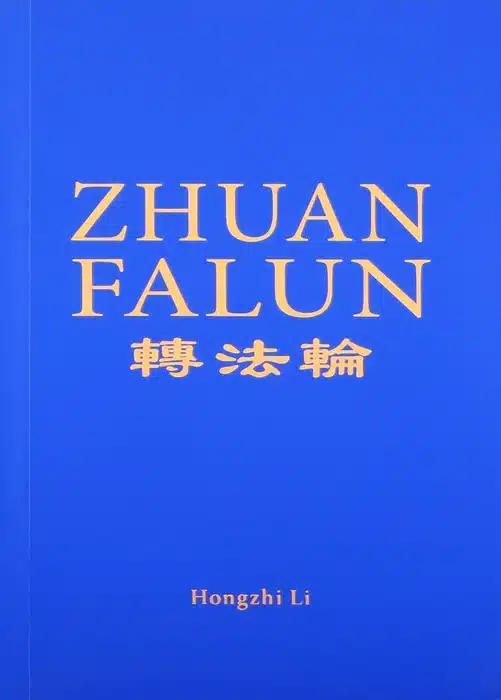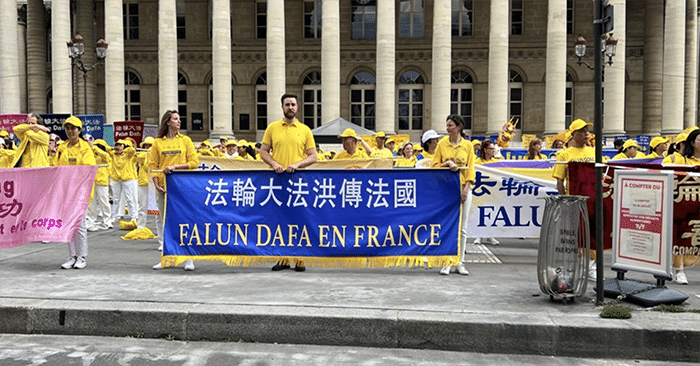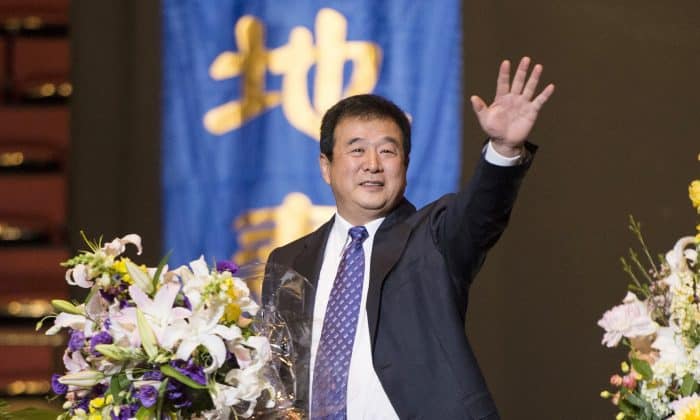Li Hongzhi is a figure whose life and teachings have caused both admiration and controversy on a global scale. As the founder of Falun Gong, Mr. Li introduced a spiritual practice that combines meditation and qigong exercises with a philosophy centered on the principles of Truthfulness, Compassion, and Forbearance.
Who is Li Hongzhi?
Li Hongzhi is the founder of Falun Gong, also known as Falun Dafa, a spiritual practice that combines meditation and qigong exercises with a moral philosophy based on the principles of Truthfulness, Compassion, and Forbearance. Born on May 13, 1951 in Jilin, China, Li introduced Falun Gong to the public in 1992. Since then, the practice has attracted a large following worldwide thanks to teachings on spiritual enlightenment, self-improvement and physical health.
Li’s teachings are detailed in a number of texts, the most notable of which is Zhuan Falun, published in 1995. This book outlines the core principles of Falun Gong, and role as the main guidance document for students. Li’s teachings were based on traditional Chinese qigong, Buddhism, and Taoism, but he also introduced new concepts related to the cultivation of virtue and spiritual advancement.
In the late 1990s, as Falun Gong’s popularity surged in China, it came under scrutiny from the Chinese government, which viewed its rapidly growing following and Li’s teachings as a potential threat to its authority. In 1999, the government launched a severe crackdown on Falun Gong, leading to widespread reports of human rights abuses against practitioners. In response to the persecution, Li Hongzhi left China and has since lived in exile, primarily in the United States, from where he continues to lead the movement and advocate for the rights of Falun Gong practitioners.
Despite the controversy surrounding Falun Gong in China, Li Hongzhi has been recognized internationally for his contributions to spiritual teaching and human rights. He has received several awards and honors from various organizations and legislative bodies worldwide for his efforts to promote peace, human rights, and freedom of belief.
Li Hongzhi’s life and work remain a subject of significant interest and controversy, particularly regarding the relationship between Falun Gong and the Chinese government. However, his influence on his followers and the broader discussion on spirituality, health, and human rights is undeniable. Through his teachings, Li Hongzhi has left a lasting impact on the lives of many individuals seeking spiritual growth and a healthier, more ethical way of living.
How did Li Hongzhi Start Falun Gong?
Li Hongzhi’s journey to founding Falun Gong is deeply intertwined with his personal experiences and spiritual insights. According to Li, from a young age, he was tutored by various masters who imparted to him teachings on qigong, Buddhist and Taoist philosophies, and the cultivation of spiritual energy. These early experiences formed the foundation of what would later become Falun Gong.
In 1992, Li Hongzhi began teaching Falun Gong to the public in his hometown of Changchun, in northeastern China. He introduced the practice as a higher form of qigong, distinguished by its combination of physical exercises and moral teachings based on the principles of Truthfulness, Compassion, and Forbearance. Unlike many qigong practices focused primarily on physical health or martial arts skills, Falun Gong emphasized spiritual cultivation and moral discipline as the path to health and enlightenment.
Where does Li Hongzhi Live?
Li Hongzhi has lived in exile from China since the late 1990s, mainly residing in the United States. His move was a direct response to the Chinese government’s persecution of Falun Gong that began in 1999, which resulted in the practice being banned in China and severely suppressed. In search of a safer environment to continue teaching and leading the Falun Gong movement, Li chose the United States because of its strong protection of freedom of speech and religion.
Ly Hongzhi’s specific whereabouts are not publicly announced, possibly for privacy and security reasons. Due to the sensitive nature of his position as leader of a movement that is still actively suppressed in China, details about his exact residence are kept secret. This decision-making power helps ensure his safety and the security of the Falun Gong community as a whole.
Even though he lives in America, Ly Hongzhi still rarely appears in public. He continues to influence the Falun Gong movement through his writings and occasional video lectures, in which he addresses both the spiritual aspects of Falun Gong and the ongoing persecution for Chinese government practitioners. His exile in no way diminished Falun Gong’s spiritual leadership; If anything, it has emphasized the global nature of the movement and its resilience in the face of adversity.
The Teachings of Li Hongzhi
The teachings of Li Hongzhi revolve around the cultivation of one’s self according to the principles of Truthfulness, Compassion, and Forbearance.
Core Principles
At the heart of Li Hongzhi’s teachings are the three foundational principles:
- Truthfulness (Zhen): Emphasizing honesty and integrity, Li teaches that being truthful is fundamental to personal growth and spiritual development.
- Compassion (Shan): This principle encourages practitioners to cultivate a heart of kindness and consideration towards others, promoting positive interactions and a harmonious society.
- Forbearance (Ren): Patience and tolerance, even in the face of hardship or injustice, are seen as virtues that test and strengthen one’s character.
Cultivation Practice
Li Hongzhi’s approach to cultivation is not just about physical health but also about improving one’s moral character and spiritual understanding. He outlines five exercises, including four standing exercises and one sitting meditation, designed to help practitioners harness energy (qi) and achieve harmony between mind and body. These exercises are said to clear energy channels, enhance well-being, and facilitate spiritual enlightenment.
Philosophical and Spiritual Insights
Li’s teachings provide a comprehensive view of the universe, human life, and the relationship between them. He integrates concepts from traditional Chinese culture, such as the Daoist understanding of the Tao and the Buddhist concept of karma, with unique insights into the nature of the cosmos, the process of spiritual cultivation, and the ultimate goal of reaching enlightenment or ‘consummation.’ According to Li, the practice of Falun Gong enables practitioners to purify their body and mind, overcome karma, and ascend to higher realms of existence.
Moral and Ethical Living
Li Hongzhi emphasizes the importance of living a life that reflects the principles of Falun Gong. Practitioners are encouraged to apply these values in their daily lives, fostering personal integrity, altruism, and a peaceful demeanor. This moral and ethical framework is intended to guide individuals towards bettering themselves and by extension, contributing positively to society at large.
The Persecution and its Context
A significant aspect of Li’s teachings in recent years has been his response to the persecution of Falun Gong practitioners in China. He speaks out against the injustices faced by practitioners and provides guidance on maintaining faith and peaceful resistance in the face of adversity. This aspect of his teachings highlights the resilience of the human spirit and the power of nonviolent resistance.
Li Hongzhi’s Books
Li Hongzhi has authored a collection of texts that serve as the doctrinal backbone for practitioners of this spiritual discipline. These works not only outline the exercises and meditation practices of Falun Gong but also delve into its philosophical, ethical, and cosmological aspects, emphasizing the cultivation of one’s character according to the principles of Truthfulness, Compassion, and Forbearance.
The most pivotal of Li Hongzhi’s publications is “Zhuan Falun,” first published in 1995. This book is considered the comprehensive exposition of Falun Gong, compiling lectures Li delivered across China. It addresses a wide array of topics, from the mechanics of qigong and the structure of the cosmos to the importance of moral living in the path to spiritual enlightenment. “Zhuan Falun” is central to the practice of Falun Gong, offering guidance on how to navigate the challenges of moral cultivation and providing insights into the nature of the universe and life’s ultimate purpose.
Alongside “Zhuan Falun,” Li has authored several other texts that complement and expand upon the teachings found in his main work. These include:
- “Falun Gong” (also known as “China Falun Gong”), which is a shorter book that introduces the exercises and provides a concise overview of the practice’s teachings. It’s often recommended for beginners to understand the basic principles and exercises of Falun Gong.
- “The Great Perfection Way of Falun Dafa,” a collection of writings and lectures by Li Hongzhi that further elaborate on the deeper aspects of the practice, including discussions on karma, the concept of predestined relationships, and the significance of suffering in spiritual cultivation.
- “Essentials for Further Advancement,” a compilation of articles, essays, and teachings that address various issues faced by practitioners in their cultivation, providing advice and moral guidance. This work is aimed at helping practitioners deepen their understanding of Falun Gong’s principles and apply them more effectively in their lives.
- “Hong Yin,” a collection of poems by Li Hongzhi. These poems are revered for their profound spiritual insights, expressed through classical Chinese poetry. They explore themes of moral integrity, the beauty of nature, and the trials faced by Falun Gong practitioners.
- “Zhuan Falun Volume II,” a follow-up to “Zhun Falun” that continues the exploration of the practice’s teachings, though this work is not as widely circulated as the original “Zhuan Falun.”
Li Hongzhi’s writings are not just instructional texts on meditation and qigong exercises; they offer a comprehensive spiritual philosophy that seeks to elevate the individual’s moral character and achieve harmony with the universe. Through his books, Li provides a roadmap for personal transformation and spiritual enlightenment, rooted in ancient Chinese traditions yet addressing the universal quest for meaning and virtue in the modern world.
Li Hongzhi’s Views on the Chinese Government
Li Hongzhi’s views on the Chinese government are deeply entwined with the history and development of Falun Gong, particularly in the context of the crackdown on the practice initiated by the Chinese authorities in 1999.
From the outset, Li Hongzhi has consistently emphasized that Falun Gong is apolitical and does not seek to challenge or undermine state power. The practice, as he introduced it, aims at personal spiritual growth and physical health, without any political agenda. However, the rapid growth of Falun Gong during the 1990s and its large following were perceived by the Chinese Communist Party (CCP) as a potential threat to its authority. This perception led to the government’s decision to ban Falun Gong and initiate a campaign of suppression against its practitioners.
In response to the persecution, Li Hongzhi has expressed strong criticism of the Chinese government’s actions, particularly regarding the violation of human rights and freedom of belief. He has highlighted the contradiction between the government’s crackdown and the peaceful, constructive nature of Falun Gong practice. Li has pointed out the irony of a government that prides itself on fostering traditional Chinese culture while simultaneously suppressing a practice deeply rooted in Chinese spiritual and philosophical traditions.
Moreover, Li has drawn attention to the broader implications of the persecution, suggesting that it reflects deeper issues within the CCP’s governance, such as intolerance to dissent, censorship, and a disregard for individual rights. He has advocated for a peaceful resolution to the conflict, urging the Chinese government to respect the principles of freedom of belief and expression, and to halt the persecution of Falun Gong practitioners.
Controversies Related to Li Hongzhi
Li Hongzhi, as the founder of Falun Gong, a spiritual practice that has attracted millions of followers worldwide, has been a figure of significant controversy, especially in the context of the practice’s persecution by the Chinese government. These controversies stem from various sources, including the Chinese government’s portrayal of Li and Falun Gong, criticisms of his teachings and statements, and the broader debate on religious freedom and human rights.
Persecution by the Chinese Government
The most prominent controversy surrounding Li Hongzhi is the Chinese government’s crackdown on Falun Gong, initiated in 1999. The government has labeled Falun Gong a “cult” and accused Li of spreading anti-government propaganda. This has led to a widespread campaign against Falun Gong, involving censorship, imprisonment, and alleged human rights abuses against its practitioners. The Chinese government’s actions have been widely criticized by international human rights organizations, which argue that the persecution violates basic human rights and freedoms.
Accusations and Misrepresentations
Li Hongzhi and Falun Gong have been subjects of intense scrutiny and misrepresentation, often stemming from the Chinese government’s efforts to discredit them. Accusations against Li include claims of spreading falsehoods, fostering dissent against the state, and promoting superstitions. Critics outside the Chinese government have also scrutinized Li’s teachings, particularly those related to cosmology, science, and morality, with some alleging that they are unscientific or socially conservative.
Teachings on Science and Cosmology
Li Hongzhi’s views on science and cosmology, as presented in his lectures and writings, have caused much debate. He criticized aspects of modern science and Darwin’s theory of evolution, instead offering a spiritual perspective on creation and the nature of the universe.
These views are consistent with many religious and spiritual traditions that offer different understandings of life and the universe but have led to controversy, especially among those who see them as inconsistent with the consensus science.
Social and Moral Teachings
Some of Li’s teachings on social and ethical issues have been controversial. While he emphasized principles such as Truthfulness, Compassion and Forbearance, his statements on issues such as homosexuality and race have been interpreted by some critics as conservative or out of touch with American values contemporary social politics.
However, it is important to note that Falun Gong practitioners and advocates often argue that Li’s teachings are misinterpreted or taken out of context, especially given the main goal of Falun Gong. This practice is more about personal spiritual cultivation than social or political activism.


